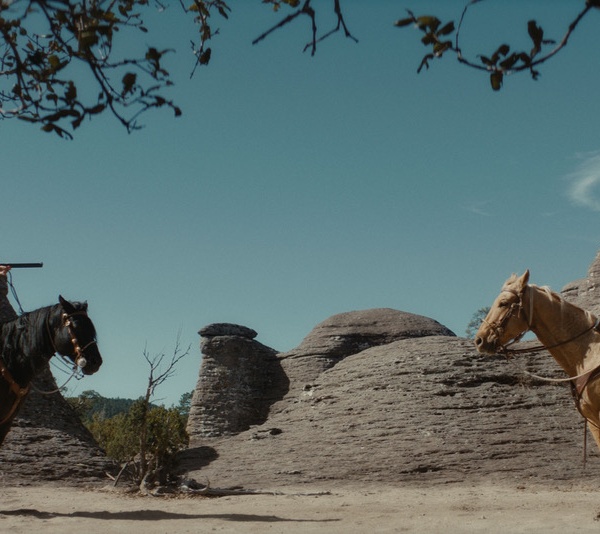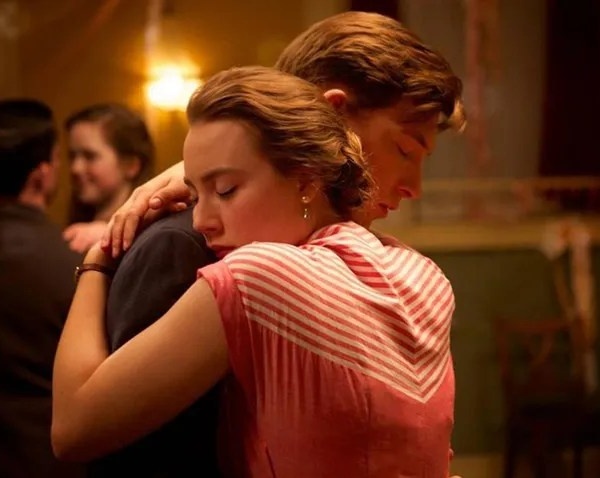
On December 6, the 2023 IndieWire Honors ceremony will celebrate 11filmmakers, creators, and actors for their achievements in creative independence. We’re showcasing their work with new interviews leading up to the Los Angeles event.
While Cord Jefferson had found much success as a TV writer on celebrated series like “Watchmen,” “The Good Place,” and “Succession,” his directorial debut “American Fiction” was borne of a time in which he felt adrift, unsure of if he was capable of anything more.
“I cried when they greenlit this movie,” the director told IndieWire. “I had faced so much rejection in television. I’d sold a number of TV shows, and developed a number of TV shows, and somewhere along the line of those shows, they were killed.”
As recently as three months before he came upon Percival Everett’s “Erasure,” the novel he adapted for his film, Jefferson said he suffered “the biggest blow of my professional career,” in which a show he had sold to Apple — one that was was already lining up production facilities — was snipped by the streamer at the very last minute. After almost a decade of rejections every time he’d attempted to level up to the creator/showrunner level, the Emmy-winning writer felt a fear begin to set in. “Maybe I can’t do this on my own. Maybe I need the Damon Lindelofs and the Mike Schurs of the world to guide my hand and make sure that I’m making good work,” he began to say to himself in the deep recesses of his mind. “Maybe it’s not going to happen for me and I’m going to be a constant co-EP on other people’s shows. And I thought, ‘That’s OK.’”
Now set to receive the Breakthrough Award at IndieWire Honors on December 6 in Los Angeles, Jefferson’s work on “American Fiction,” about a Black literary scholar named Monk who’s been peddling impenetrable texts, only to reach mass appeal when he jokingly submits a book to publishers that’s a distillate of every harmful trope found in work featuring African Americans, felt slightly like art imitating life. “I was given an opportunity to make [something new], and the fact that it’s been so well received, it’s literally a dream come true,” he said of his Orion Pictures release, which recently won the prestigious People’s Choice Award at the Toronto International Film Festival. With TV, “it has been a decade of just pushing a stone up the hill, and watching it roll back down a lot. So the fact that the stone didn’t roll down this time is something of a minor miracle for me.”

It’s important to note that Jefferson did not come to “Erasure” in any standard way. “It wasn’t an open writing assignment. It wasn’t like a studio had come to me and said, ‘We’ve got the rights to this novel. Do you want to try to take a crack at it?’ I just read this thing and felt really passionate about it, and was like, ‘I want to see this in the world.’ And that’s all there was to it,” he said.
While he had previously toyed with directing, having been on sets like “The Good Place” to produce the episodes he’d written, Jefferson had been insecure about his knowledge of the technical side of filmmaking. “I waited until I found a story that I felt like I knew on a really molecular level. When I read this novel, and then wrote this script, I was like, ‘I know this so well. I know this story, these characters, and the themes of this film in my bones,’” he said. “And it felt like knowing the story that deeply allowed me to not be so terrified when I went on set. Because I said, ‘Even if I don’t know anything about lenses, I know the story that I’m trying to tell, and I know these characters.’ And so as long as I remain true to both of those things, that’ll guide my hand when it comes to making lighting, production design, and camera decisions.”
At the script stage, Jefferson thought a lot about his time working with Lindelof on “Watchmen,” where big swings were a welcome part of the adaptation process, but only if they felt guided by the spirit of the original graphic novel by writer Alan Moore and artist Dave Gibbons. With his adaptation of “Erasure,” “there’s all these really huge changes that I don’t include in the film, or things that I added in the film that weren’t in the story, but those don’t feel like a departure from the essence of what Percival was trying to do in his novel,” said the screenwriter.
In fact, a scene between lead Jeffrey Wright and actress Issa Rae often highlighted in reviews of “American Fiction,” one that Jefferson considers to be the linchpin of the story, is of his own creation. “I don’t think that the story would be complete without that, at least the story that I was trying to tell,” said the filmmaker. “I remember really being excited to read that scene when it came up, and it just never came. So I knew that when you’re anticipating something that greatly, the way that I was, it feels like, ‘Oh, that’s just an obvious choice for something that you have to include when you’re adapting it.’”

Before, as a TV writer, Jefferson’s day-to-day work life looked like sitting in an air-conditioned office space with colleagues, breaking for lunch to eat expensive salads from Joan’s on Third, and then heading home around 6 p.m. Making a film was thrillingly more arduous. “There was something about being on set, and just being out there at one in the morning, cold and hungry, with 70 other people who are helping you build this thing, just creative problem solving with them, getting your hands dirty and being in the thick of it, that I really loved,” said the director. “Being the person who’s leading the show, that was a new experience, but I loved it. I’m addicted to it. I never want to go back.”
Though the 41-year-old long had the fear that he might have entered the industry too late, and that he needed a showrunner to hold his hand in order to make something audiences want to see, Jefferson feels this “American Fiction” breakthrough has come at the right time in his life. “If I tried to make this movie even five years ago, it would’ve been much different, and in my opinion, much worse because I don’t think that I would’ve had the life experience and emotional wisdom to write it in the way that I wrote it,” he said. “If I had written this movie and tried to direct this movie, even as recently as 2018, I would’ve been disappointed in the product. Let alone what audiences thought, I would’ve made something that I found disappointing because I didn’t have the worldview and the perspective [I have now]. I hadn’t thought about these things as frequently as I should have.”
Age has also made him cynical about the idea that any one film could remedy the issues with Black representation in media that “American Fiction” puts a spotlight on, but he does hope his film “inspires a few people who think that the stories that they want to tell won’t get made; who think that there isn’t a market for the stories they want to tell; that they’re not going to be able to convince anybody give them the money to make the stories they want to tell; hopefully it cracks the door open a little bit more and allows people who might not otherwise think of themselves as filmmakers to think of themselves as filmmakers and storytellers.”
He added, “One of the reasons why I didn’t allow myself to think of myself as an artist earlier on is because I didn’t really see people a lot of the time making the movies that I wanted to make and telling the stories that I wanted to tell who looked like me.” With success comes the notion that his next project be one that features the representation that eluded him as a child.

“I’m writing a present day noir Western, in which two Black brothers travel around the American Southwest looking for a missing sibling. I’m from Tucson, Arizona. You don’t really ever see Black people in the contemporary Southwestern United States, and so I just thought, ‘What a fun movie,’” said Jefferson. “I don’t want to make the same movie over and over and over again. So while I love Monk and his sort of high-minded conversations about art and stuff, I wanted to take a left turn with this one and try something that was, again, a little scary.”
Reflecting on this hugely pivotal moment in his career, having accomplished feats he’d previously thought weren’t possible, the first-time filmmaker concluded, “the best successes I’ve had in my life, both personally and professionally, have been when I’ve been allowing myself to get out outside my comfort zone and get a little scared from time-to-time.”





